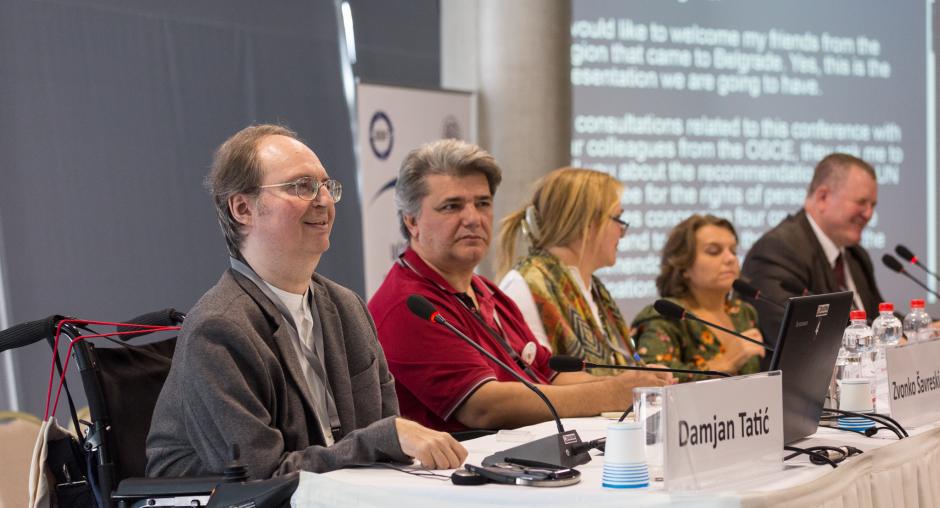Political and electoral participation of persons with disabilities focus of ODIHR-supported regional conference in Serbia

Enhancing the political and electoral participation of persons with disabilities was at the centre of discussions during a conference co-organized by the OSCE Office for Democratic Institutions and Human Rights (ODIHR) and the Balkans Independent Disability Framework on 16 and 17 October 2018 in Belgrade.
The event brought together 70 participants (43 women and 27 men), including prominent activists in the field of disability rights, current and former parliamentarians with disabilities, academics, representatives of disabled people’s organizations and experts from other international organizations, including the United Nations Committee on the Rights of Persons with Disabilities. ODIHR invited practitioners and experts in the field from Latvia, Slovenia, Ukraine and the United Kingdom.
The event helped to raise awareness about the limited participation of persons with disabilities in political and electoral life across the Western Balkan region and identify measures to facilitate more diverse and inclusive democratic institutions and decision-making processes.
Key topics discussed included co-operation and partnership between persons with disabilities and government institutions, as well as related good practices, challenges and recommendations; inter-parliamentary lobby groups and political parties; the inclusion of women and youth with disabilities in political life; and the right to vote, including methods of advocacy for the implementation of ODIHR election observation recommendations.
“Full and effective participation of persons with disabilities, including women and youth, in all aspects of public and political life is crucial in any democratic society,” said Tiina Kukkamaa-Bah, Chief of the ODIHR Democratic Governance and Gender Unit. “It signifies respect for the human rights of all individuals and ensures that voices of all community members are equally valued and heard.”
Goran Kustura, Secretary-General of the National Council of Slovenian Organizations of Persons with Disabilities, said: “Electoral participation of persons with disabilities is not just about removing barriers and making polling stations and voting materials accessible. These are only the first steps. They should be accompanied by policymaking that includes grassroots movements and umbrella associations, and persons with disabilities themselves administering elections and running for office.”
The event was organized as part of ODIHR’s projects “Our right to Participate – Promoting the Participation of Persons with Disabilities in Political and Public Life” and “Support to Elections in the Western Balkans”, forming part of the Office’s assistance to the participating States in promoting inclusive democratic societies and following up on ODIHR electoral recommendations. The Support to Elections in the Western Balkans project is funded by the European Union and the Austrian Development Agency.
